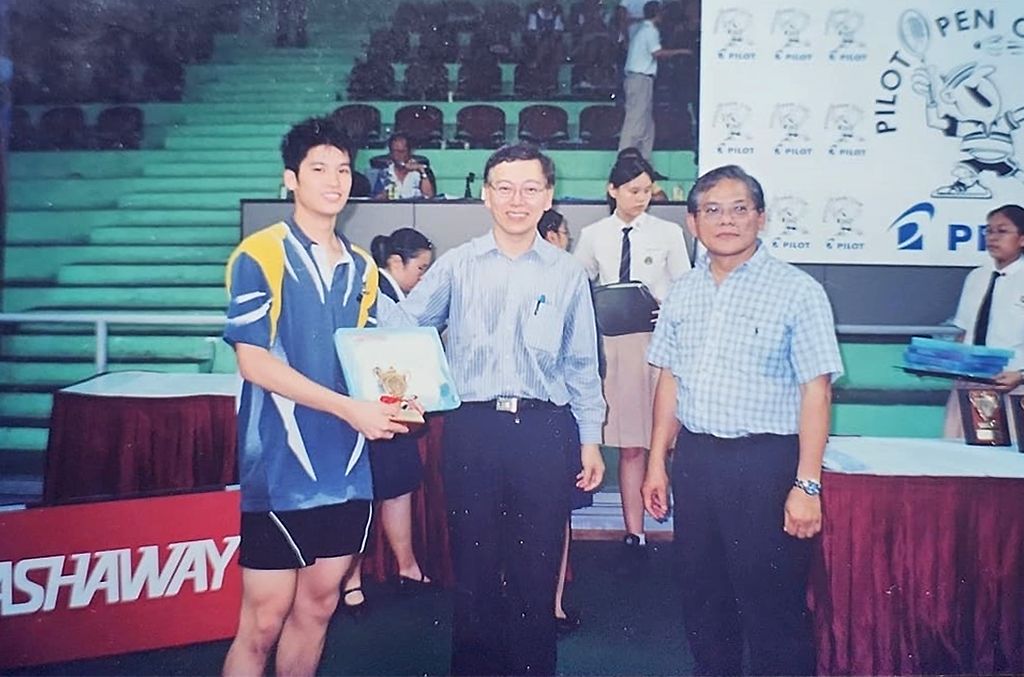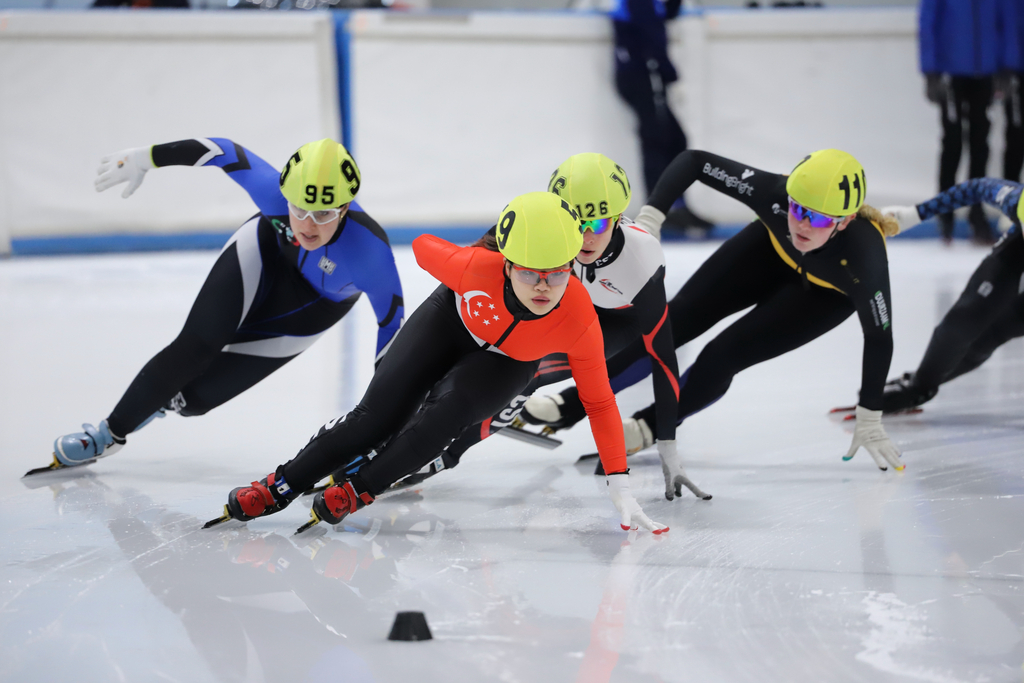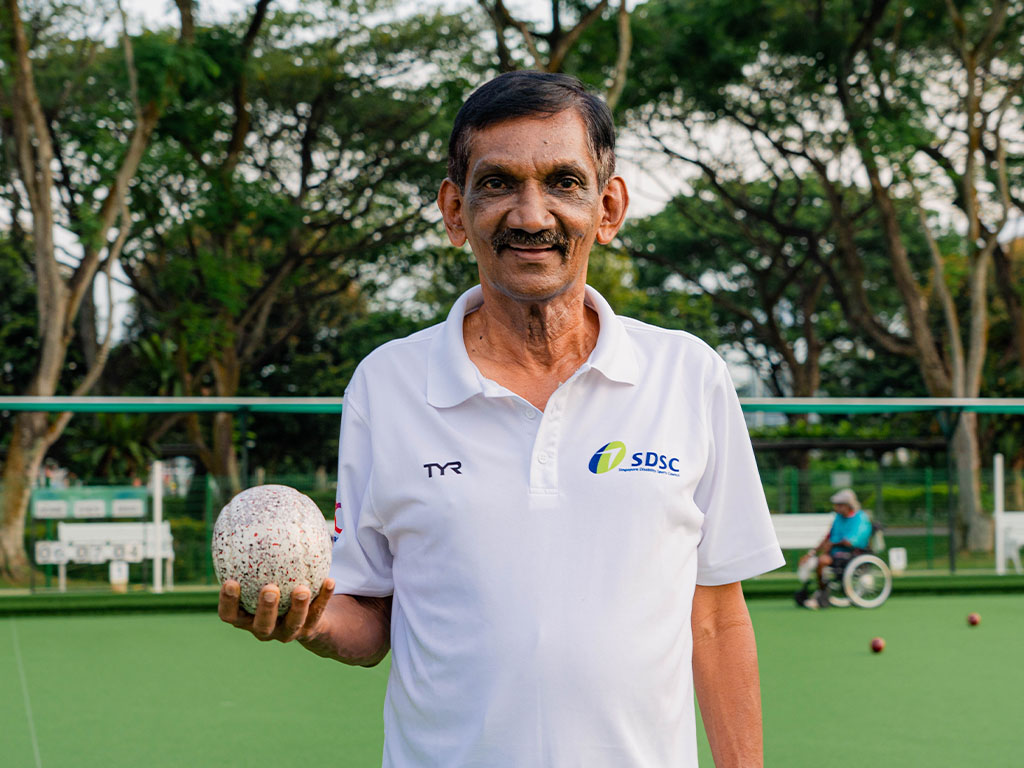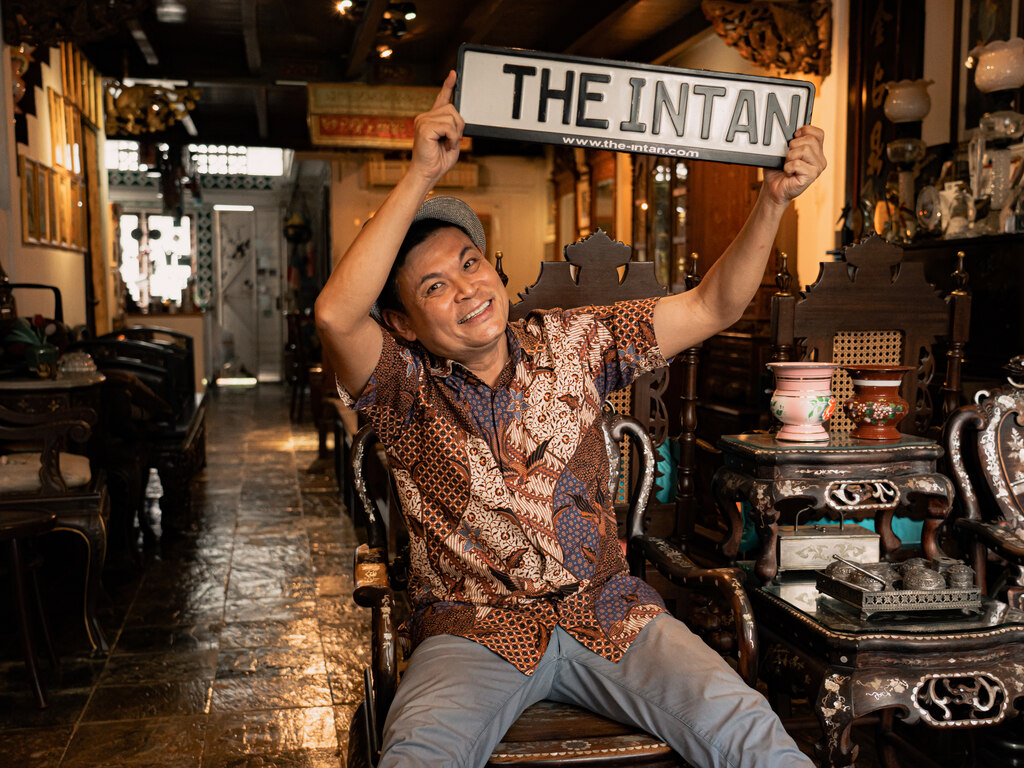Uniting The Sports Community During The Pandemic
Having swum competitively for more than half his life, it’s no surprise that Elvin Ting started his own swimming school, aptly named The Swimming Room. With hundreds of students under his wing, Elvin began hosting swimming competitions and carnival events for them. Soon, Elvin found himself organising large-scale sporting events for grassroots communities, corporate functions, and even political parties.
- 21 Feb 2022
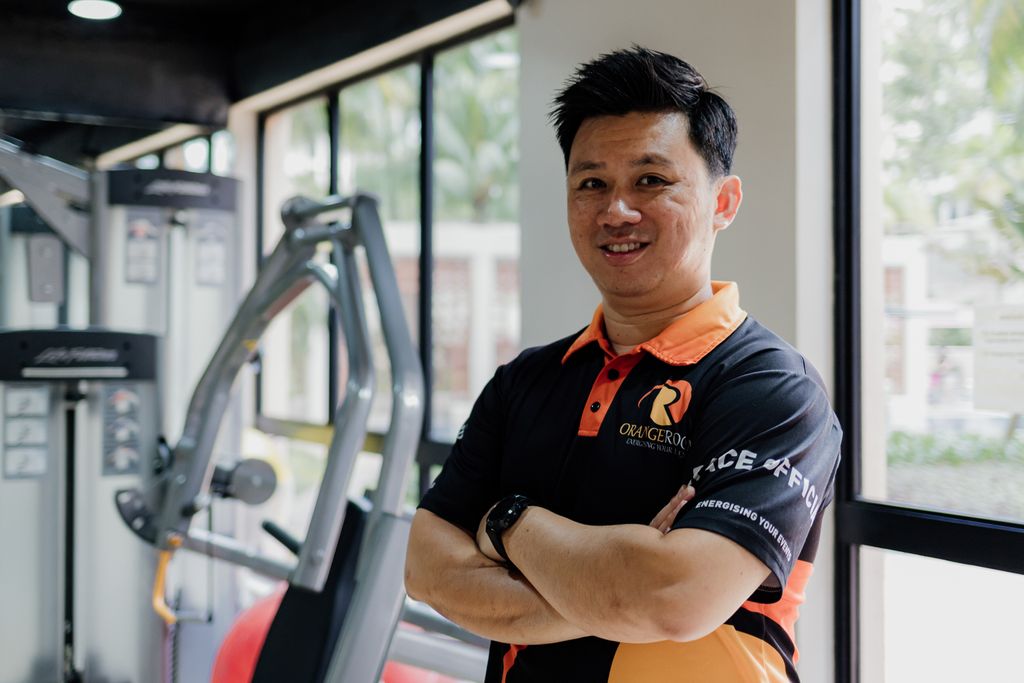
Elvin Ting, the founder of sports and wellness group, Orange Room.
In 2008, he founded the sports and wellness group, Orange Room. The company embodies Elvin’s conviction to encourage people to be more active and unite people under the umbrellas of sports, fitness, health, and wellness.
“Our mission at the beginning was to get everyone to do sports. We figured the only way to do this was, firstly, to get them to enjoy sports. You have to love what you do. Secondly, [we wanted] to build a community around it so you don’t do it alone,” Elvin shared enthusiastically.
In 2009, Orange Room started the multi-sport event series “Tri-Factor”. The series allowed sportsmen to swim, bike, and run together. It expanded regionally in 2017 and currently operates in eight countries, such as Vietnam, Philippines, China, Korea, Malaysia, Indonesia and Thailand. Elvin’s work in the past few years has been broad, as he embarked on everything from optimising people’s health to bringing the sports community together.
Bringing Sports Science To The Masses
Optimising progress and enabling people to go beyond their limits lie at the heart of the Orange Room’s offerings. The company relies on sports science to do so and Elvin shared more about the government grants and programmes that have supported him on this endeavour.
It’s common knowledge that gym memberships rise in number during the New Year but decline within a matter of months. Elvin and his team focused on the community's needs and established a data-driven approach to address this phenomenon. They concluded that this occurs because people do not know if they are on the right path to fitness and sometimes do not see their progress when they first start going to the gym. This leads to them giving up.
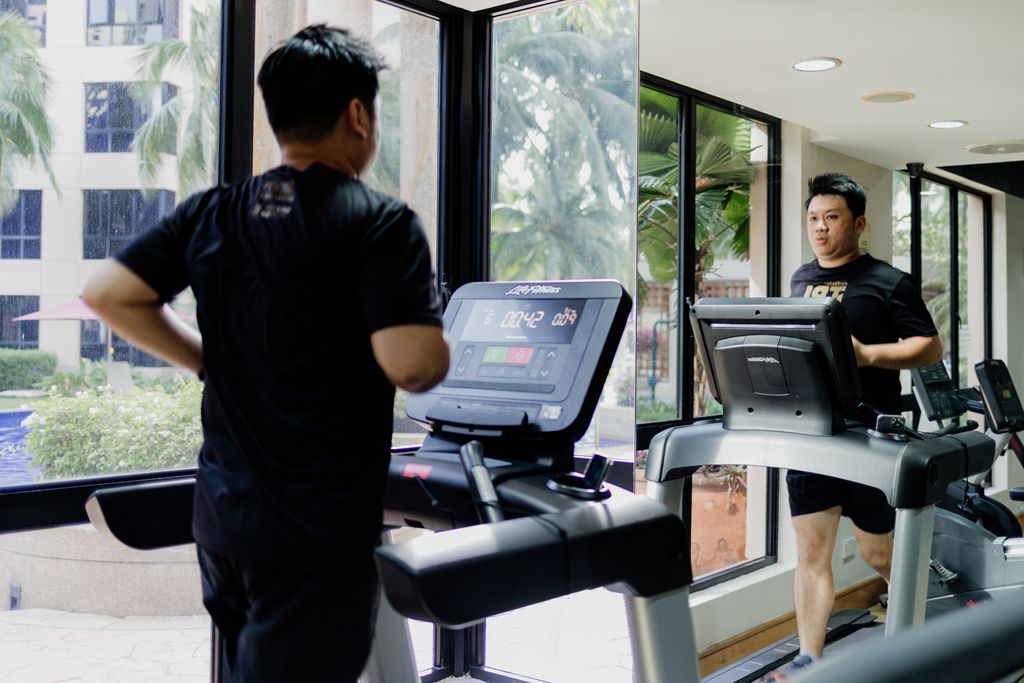
Elvin at the gym
“This is where the Innovation Grant came in,” Elvin said proudly. “Everyone’s lives are different so there is no one-size-fits-all model. From this, we built a platform powered by various AI engines to track people’s current individual fitness goals and auto-adjust their training plans to ensure optimisation. This lets us build sustainable and effective pathway for each individual to help them reach their goals.”
While such a data-driven approach isn’t new, it’s typically reserved for high-performance athletes. “The problem was that this data wasn’t available to the masses. My mission, with the help of SportSG’s Innovation Grant, was to bring this methodology to the masses and enable people to operate more effectively and enjoy the process of getting fit,” he continued.
On top of this, Elvin and his team — with the help of MCCY and SportSG — are currently developing another app named ‘Level UP’ to expand the footprint of the Tri-Factor community beyond Singapore.
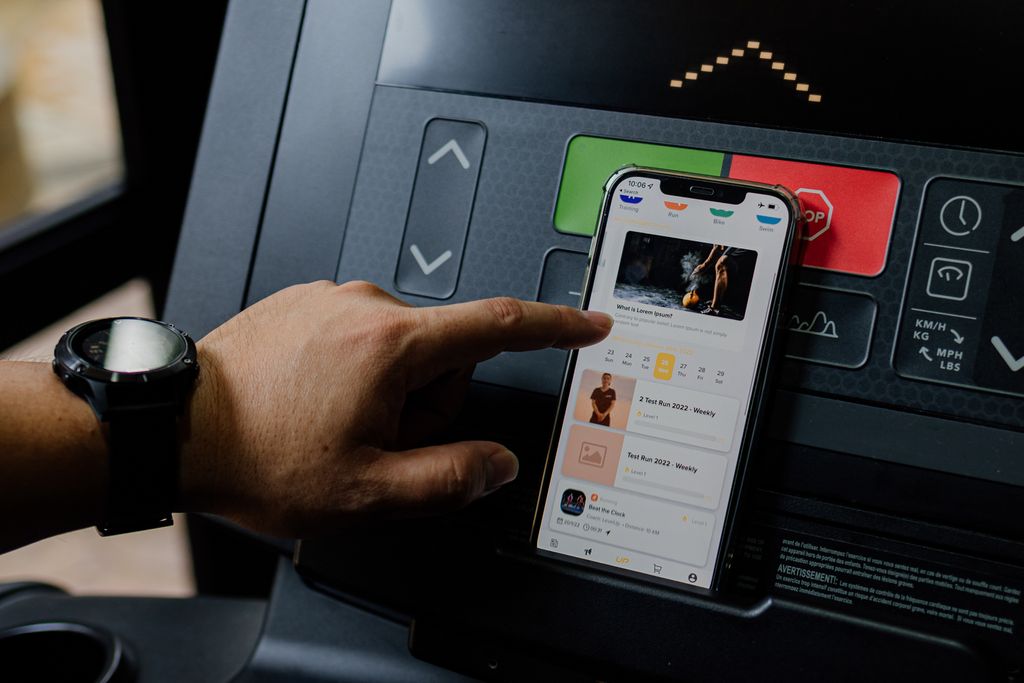
Elvin introducing the Level UP app on his phone
Since Tri-Factor’s key purpose is to encourage people to live better through swimming, cycling and running together, Orange Room invested in building the LEVEL UP app to help individuals at every level to grow. The app looks at your physical performance, mental wellbeing and individual fitness,” Elvin shared. “We also use sports science to benchmark individuals according to where they are in their fitness group, whether they are beginners or competitive athletes. It’s highly complex and I’m happy MCCY and SportSG are assisting us to accelerate the app development. We’re looking to launch the beta before March 2022.”
On how he learnt about SportSG’s support grants, Elvin clarified that “sport has always been close to my heart. Aside from running a swimming school, I produce events and work closely with the National Sports Association (NSA) and Sports Singapore to support the community and provide industry feedback. That’s how I learnt about the grants, and how we managed to support our events and digitalisation efforts. In addition, I also shared information about the grants with relevant event partners in the industry as many of them were struggling due to the pandemic.”
Embracing Technology To Build Communities
Sports and technology may come across as mutually exclusive to many, but Elvin conscientiously brings these two disciplines together in his approach to the Orange Room. Graduating from university with a degree in Electronics and Electrical Engineering, Elvin values processes, systems, and organisation, and their abilities to connect people.
While Elvin initially tapped into his background to build booking systems for The Swimming Room, his approach became more crucial and relevant as the pandemic hit Singapore and forced many events in the sporting community to halt. Orange Room swiftly adapted to circuit breaker measures and was one of the first to launch virtual events. One such event was “Run for Heroes”, which took place in 2020 in close collaboration with partners including SportSG.
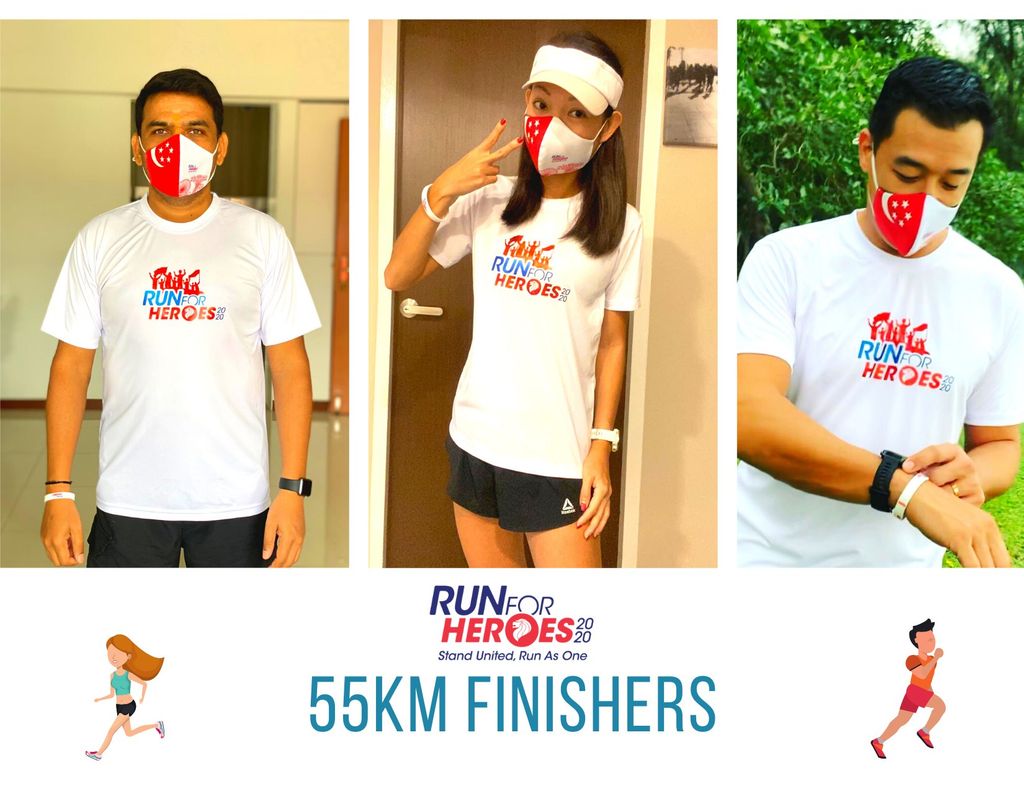
Participants with Run for Heroes merchandise
“There was a lot of stress and many restrictions at the start of the circuit breaker, so we came up with the concept of running as one. You’d run one kilometre alone but that didn’t stop there. We engaged Singaporeans abroad, including 5000 Singaporeans in China.” The result? “Run for Heroes” ended up raising over 80,000 wristbands, to be shared with 66,000 frontline workers together with personalised messages of thanks, which Elvin’s team wrote.
Beyond the success of “Run for Heroes,” Elvin knew that more had to be done to connect and engage the sporting community. Unsatisfied with how popular ‘phygital’ events still didn’t effectively blend physical and virtual elements, Elvin and his team created a new app FatCatRun to track runners’ races in real-time and bring communities together. He hoped that the app would be able to engage runners who were unable to compete in physical races due to the restrictions.
“These are communities that like to get out to compete and have fun, and we received awesome responses from our pilot team. Many of them said it was a true ‘phygital’ experience that let them feel as if they were truly racing, rather than an event that combined online and offline experiences,” Elvin continued. “You can see your cat avatar and your friends’ avatar start at the same time. You can compare your results with your friends at the end — just like a real race.”
Looking To The Future
Like many other businesses that had their efforts disrupted, Elvin looks forward to 2022 with ambition and a wish list of plans. “I really want to kickstart “Tri-Factor” events across Asia starting from our home here in Singapore. We want to start with virtual events this month and return to physical events in the upcoming months. I’m also working with different governments in Asia to promote our brand, with events in Vietnam, Philippines, China, Korea, Malaysia, Indonesia and Thailand coming soon.”
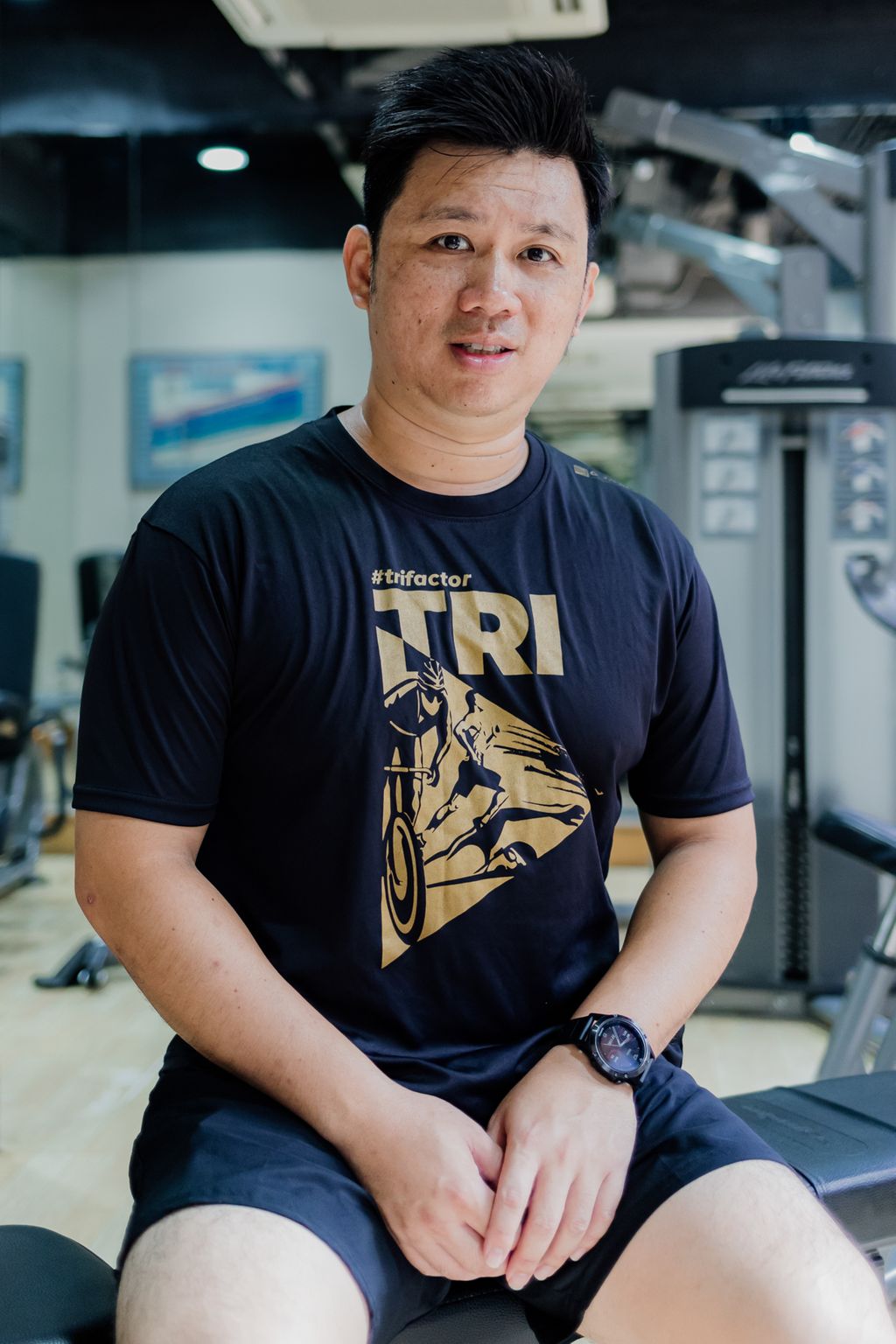
Elvin in his Tri-Factor shirt
Speaking on his hopes for the sports industry, Elvin is both hopeful and pragmatic. “We need to be resilient and innovate and focus on solving humanity’s problems. We also need to be pragmatic and be aware of what support the ecosystem has, be it government grants or community support. It’s not going to be easy but we need to come together and embrace change to bring sports back for everyone again.”

